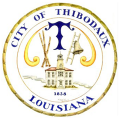Louisiana colleges have a wide selection of accredited nursing programs, offering opportunities from specialty degrees to a master’s degree in registered nursing. Many Louisiana universities offer bachelor's degrees in registered nursing, one of the most popular career paths in the state; there are more than 40,000 registered nurses (RNs) statewide, earning a median wage of $60,380 annually.
Louisiana
We've organized a comprehensive list of Louisiana nursing schools. Below you'll find information on specific nursing programs such as LPN certificates and ADN, BSN, and MSN degrees. You'll also find a profile of nursing education and careers in each major Louisiana city.
City-specific information
Lake Charles, Louisiana, is home to 1,800 registered nurses (RNs), 1,220 certified nursing assistants (CNAs), 1,200 licensed practical nurses (LPNs), and more than 100 nurse practitioners (NPs). Depending on the role, education requirements can range from a brief certificate or diploma program to a graduate-level master of science in nursing (MSN) or doctor of nursing practice (DNP). Fortunately, the nursing schools in the Lake Charles metropolitan area offer programs at all levels.
The Houma-Thibodaux metropolitan area of Louisiana has its fair share of nursing professionals. They work in roles ranging from certified nursing assistant (CNA) to certified registered nurse anesthetist (CRNA). Many of these professionals earned their degree or certificate at a local school, such as Nicholls State University or Fletcher Technical Community College.
Nursing is one of the largest professions in Louisiana. The state is home to more than 90,000
nurses across a broad range of roles, including certified registered nurse anesthetist (CRNA), registered nurse (RN), licensed practical nurse (LPN), and certified nursing assistant (CNA). Each nursing role carries a distinct set of responsibilities and licensure requirements.
Nurses at all levels have become absolutely vital to our modern healthcare system. With growing populations in need of care and soaring healthcare costs, nurses today are taking on many of the responsibilities traditionally handled by doctors. These added responsibilities make it critical that nurses have the best training available.
Certified nursing assistant (CNA)
In New Orleans, all levels of nurses are in high demand. Nurses are absolutely vital to the healthcare system, and opportunities in the field are as rewarding as they are lucrative. Below you can read about the main types of nurses in greater detail.
Certified nursing assistant
In the Metairie / Kenner area, and all across the state of Louisiana, nurses at all levels are in extremely high demand. Below, you can read about the main types of nurses and their different responsibilities in greater detail.
Certified nursing assistant (CNA)
The role nurses play in the healthcare system is expanding, and nurses are taking on many of the responsibilities that have traditionally been entrusted to doctors. In Lafayette and all across the state of Louisiana, all levels of nurses are in high demand. Below, you can read about the main types of nurses in greater detail.
Certified nursing assistant (CNA)
In Louisiana and across the country, nurses play an extremely important role in providing care for patients, taking on many of the responsibilities traditionally entrusted to doctors. With the challenges presented by an aging population, growing numbers of lifestyle diseases, and an expanding healthcare system, the medical community is relying more and more on nurses every day. In Baton Rouge, there is a demand for nurses at all levels. Below, you can read about the main types of nurses in greater detail.
Certified nursing assistant (CNA)
Choosing to become a registered nurse (RN) can be a stepping stone to a number of other careers in healthcare. If you continue your education by pursuing a master of science in nursing (MSN) degree, you could move into a role in nursing administration, education, or gain expertise in a number of specialty fields. Nurse practitioner, nurse midwife, and nurse anesthetist are three of the most common specialty roles assumed by MSN degree-holders. These roles are described in greater detail below.
Nurse practitioner (NP)
Registered nurses (RNs) are vital to the healthcare system, reporting directly to doctors and helping them to provide a high level of care. RNs manage a team of licensed practical nurses (LPNs), certified nursing assistants (CNA), and other staff to plan, implement, and assess patient care at all levels. Today, RNs are qualified to perform many of the tasks that have traditionally been entrusted to doctors. With an increasing level of responsibility, it is essential that registered nurses get the best education possible.












